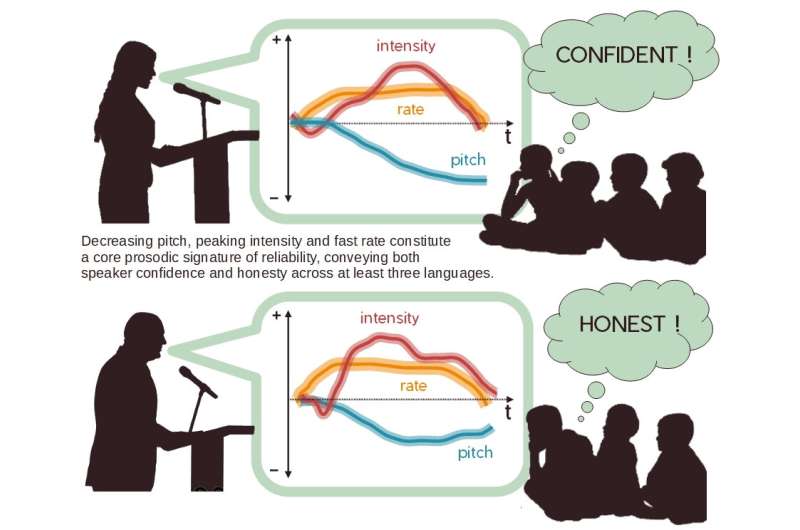Recognizing liars from the sound of their voice

Faster speech rate, greater intensity in the middle of the word, and falling pitch at the end of the word: That is the prosody to adopt if one wants to come across as reliable and honest to one's listeners.
Scientists from the Science and Technology for Music and Sound laboratory (CNRS/Ircam/Sorbonne Université/Ministère de la Culture) and the Perceptual Systems Laboratory (CNRS/ENS PSL) have conducted a series of experiments to understand how we decide, based on the voice, whether a speaker is honest and confident, or on the contrary dishonest and uncertain.
They have also shown that this signature was perceived similarly in a number of languages (French, English, Spanish), and that it is registered "automatically" by the brain: Even when participants were not judging the speaker's certainty or honesty, this characteristic sound impacted how they memorized the words.
Prosody consequently conveys information on the truth-value or certainty of a proposition. Scientists are now trying to understand how speakers produce such prosody based on their intentions.
This research was published on 8 February in Nature Communications.
More information: Nature Communications (2021).
Journal information: Nature Communications
Provided by CNRS
















